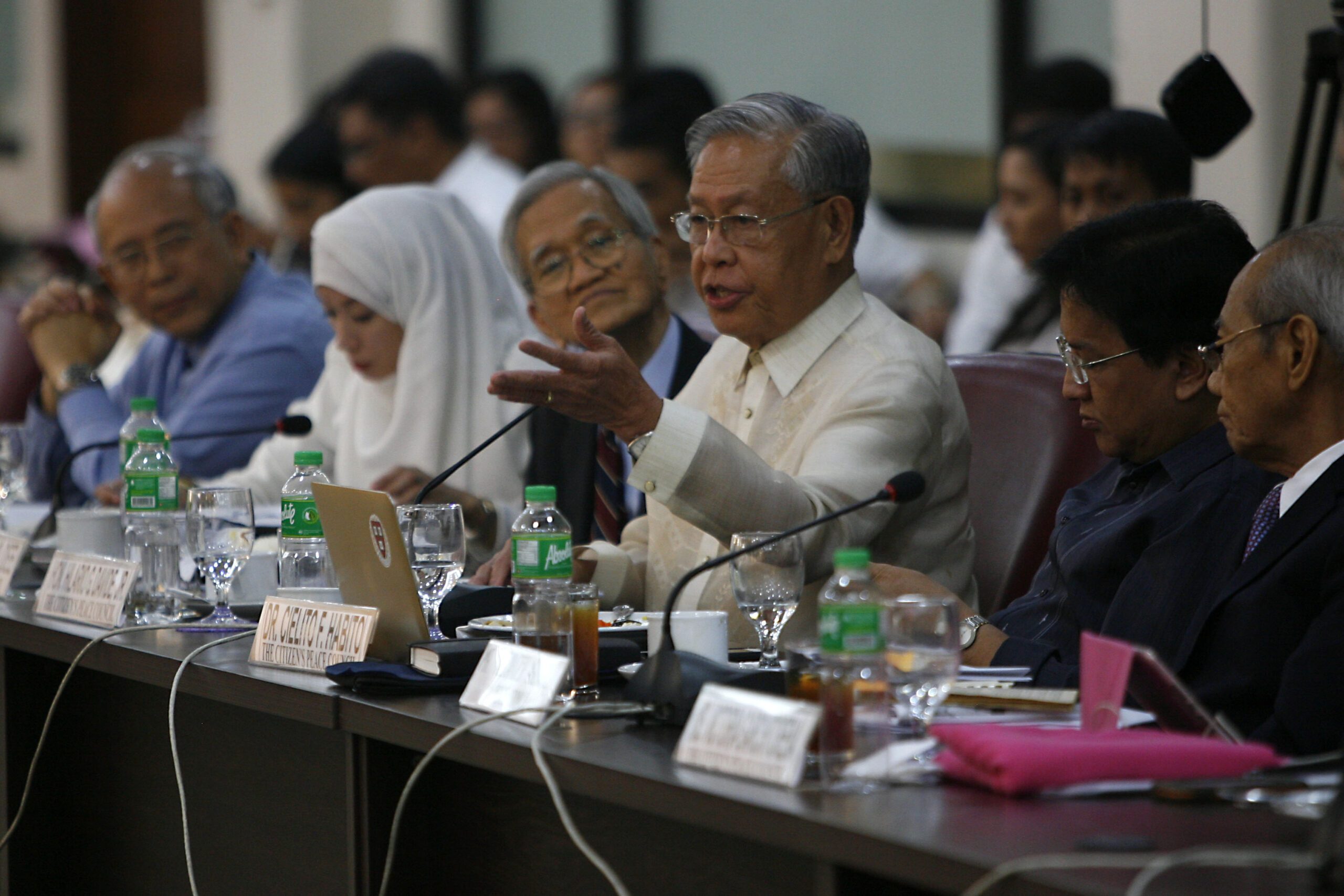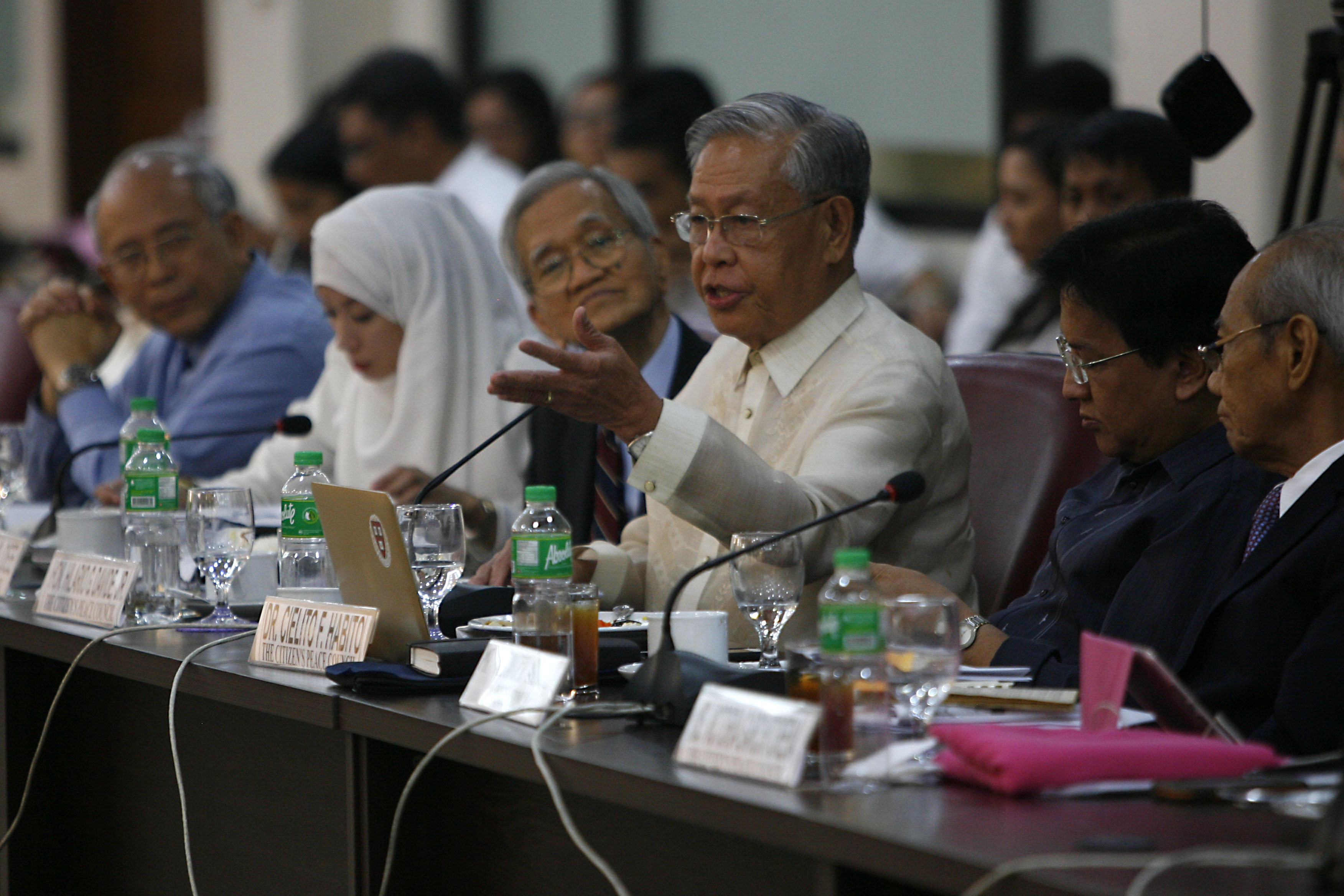SUMMARY
This is AI generated summarization, which may have errors. For context, always refer to the full article.


MANILA, Philippines – The proposed Bangsamoro Basic Law needs to spell out the rights of indigenous peoples in the envisioned autonomous region.
This was one of they key recommendations of the Malacañang-convened Peace Council in the report submitted to the House of Representatives on Monday, April 27.
Former ambassador to the Holy See and Malta Howard Dee said the council invited members of different indigenous tribes in Mindanao during the weeks-long discussions held on the proposed measure. (READ: Peace Council: Bangsamoro law constitutional, acceptable)
Tribal leaders raised “special concerns” during the meetings, he said.
A number of tribal groups have released position papers, calling for the harmonization of rights already granted to them under the Indigenous Peoples Rights’ Act (IPRA), especially on the matter of ancestral domains, with the Bangsamoro bill.
Cagayan de Oro Representative Rufus Rodriguez, on the other hand, gave assurances that the BBL will not diminish indigenous peoples’ rights but even add to them.
The BBL “recognizes, promotes and protects the rights” of indigenous people’s but does not mention the IPRA, a law passed in 1997 that has yet to be implemented in the Autonomous Region in Muslim Mindanao.
Dee said the council recommends that separate provisions devoted to the protection and promotion of non-Moro indigenous peoples’ rights as laid out in the IPRA should be added in the BBL.
A “comprehensive enumeration” of non-Moro rights should be included in the proposed law, said Dee, who headed the social justice cluster of the council.
North Cotabato 2nd District Representative Nancy Catamco welcomed the recommendation of the peace council, citing the history of indigenous peoples in Mindanao.
She said history shows that lumads or indigenous peoples were already in Mindanao even before the government or even Christianity and Islam came to the islands.
“This is about identity. This is about lands. This is about dignity. This is about respect. This goes beyond giving slots to them in the parliament,” Catamco said.
The peace council also called for the allocation of more reserved seats not just for non-Moro communities but also for the youth and women’s sectors.
The proposed Bangsamoro government, which is ministerial in form, is designed to have a combination of district seats (40%), party representatives (50%) and reserved seats or sectoral representatives (10%)
Article VII Section 5 of the BBL states that “sectoral representatives shall constitute 10% of the members of parliament, including 2 reserved seats for non-Moro indigenous communities and settler communities.” Women shall also have a reserved seat under the proposed law.
Non-Moro communities and other groups must also be mentioned in provisions of the BBL governing the rehabilitation that the region will undergo during the transition period.
Article XIV Section 1 of the BBL state that the Bangsamoro Government “shall formulate and implement a program for rehabilitation and development that will address the needs of MILF combatants/BIAF members and decommissioned women auxiliary forces, internally displaced persons, and poverty-stricken communities.”
Including other groups and communities affected by the armed conflict would help “avoid the misconception” that rehabilitation would be limited only to members of the Moro Islamic Liberation Front (MILF), the council said.
The proposed Bangsamoro Basic Law seeks to entrench a new autonomous region in Muslim Mindanao that is more powerful than the current one in place. It is a product of the peace deal between the government and the MILF.
Executive Summary – Peace Council report
– Rappler.com
Add a comment
How does this make you feel?
There are no comments yet. Add your comment to start the conversation.